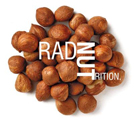As a registered dietitian, I understand that millions of people struggle with preventing weight gain and promoting weight loss. One of the newer proposed “magic” weight loss pills on the market is raspberry ketones. This product has been endorsed by Dr. Oz. Although Dr. Oz is an actual doctor, this doesn’t mean that every claim made on his show is supported by strong evidence. However, I must admit that the famous MD does note that this product doesn’t necessarily guarantee results in everyone and is not a replacement for a healthy lifestyle.
So now it’s time to dig into the evidence so that you can make an educated and informed decision about your health. Raspberry ketones are an aromatic compound that comes from red raspberries. It has been suggested that raspberry ketones can alter lipid/fat metabolism and increase lipid breakdown.
In one study conducted on rats, it was suggested that rats who were fed a high-fat diet and then given raspberry ketone did not show an increase in weight related to their diet, had decreased liver triacylglycerol (fat) content with supplementation (after liver fat had increased with high fat diet), and showed increased hormone-induced lipid breakdown in rat fat cells in the epididymis (male reproductive organ).
Another 2010 study completed on cells in a lab found that raspberry ketones increased lipolysis (fat break-down) and the secretion of adiponectin from fat cells. Adiponectin is a hormone secreted by adipocytes (fat cells) involved in the metabolism of lipids, glucose, and may have anti-inflammatory effects. Abnormally low levels of this hormone has been linked to obesity, insulin resistance, and heart disease in humans.
Up to this point, only one study including raspberry ketones has been conducted on humans. However, in this study the supplement included raspberry ketone with caffeine, capsaicin, garlic, ginger and Citrus aurantium; isolated raspberry ketone was not used. 45 obese participants completed 8 weeks of diet and exercise with a raspberry ketone containing supplement or placebo. The placebo group showed beneficial changes in body fat, however the supplemented group had greater loss of weight, fat mass, waist and hip girth, and increased lean body mass. It is important to note that since the supplement was a combination of ingredients, it is difficult to determine if effects seen were related only to raspberry ketone.
It would be difficult to conclude that since studies in rats, fat cells in a lab, or in 45 humans show encouraging weight loss results, the same results would be seen in every person. In addition, little is known about the safety of the long term use of this product in high doses. Some sources suggest it may interact with Coumadin (blood thinner), while other sources suggest that its structure is similar to a stimulant called synephrine which may not be safe for patients with high blood pressure or heart disease. Furthermore, the supplement may contain additional ingredients whose safety have not yet been determined.
At this point in time, I cannot encourage the use of this product until further research regarding it’s effects in humans has been conducted. However, if you still choose to still give it a try, let your healthcare providers know to ensure you’re making a safe decision, and don’t forget that your food choices and physical activity can always support your journey.
References
http://www.ncbi.nlm.nih.gov/pubmed/20425690
http://www.sciencedirect.com/science/article/pii/S0024320505001281
http://www.todaysdietitian.com/newarchives/090112p80.shtml
http://www.doctoroz.com/videos/miracle-fat-burner-bottle
http://www.ncbi.nlm.nih.gov/pubmed/23601452
http://www.webmd.com/vitamins-supplements/ingredientmono-1262-RASPBERRY%20KETONE.aspx?activeIngredientId=1262&activeIngredientName=RASPBERRY%20KETONE
